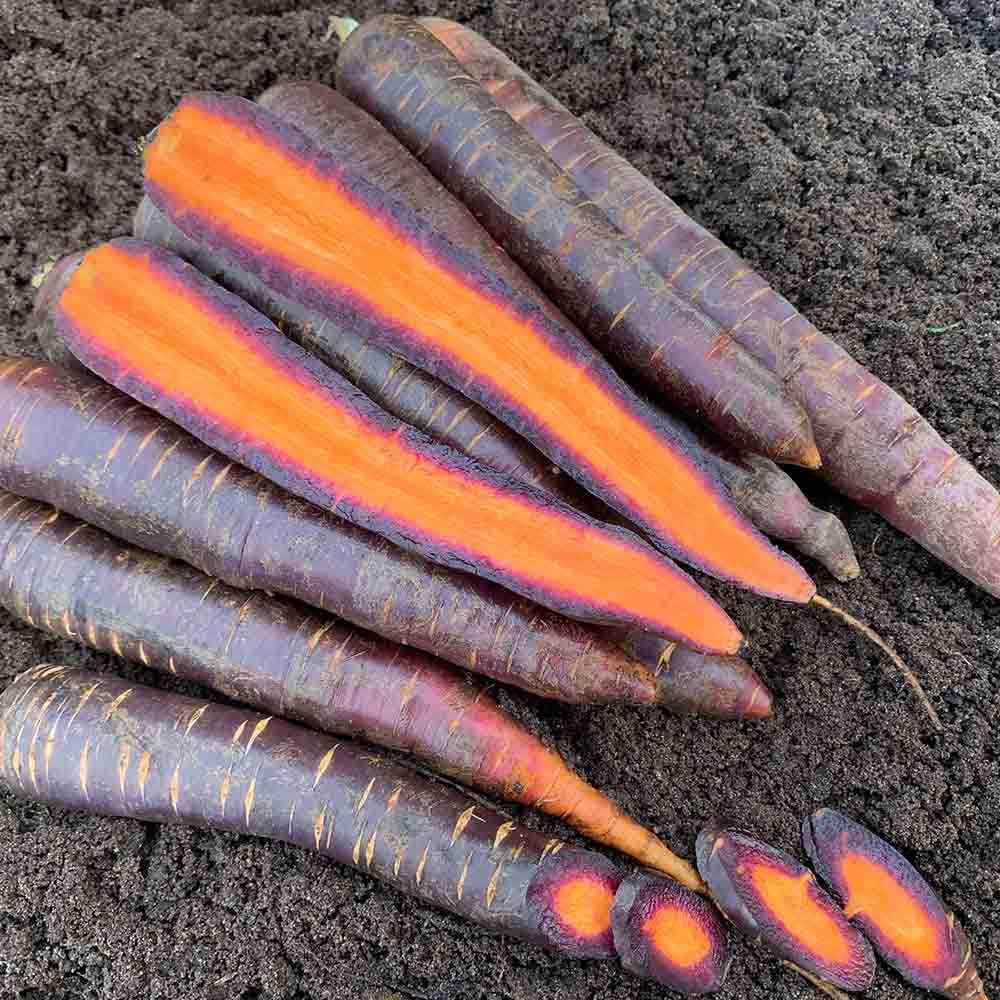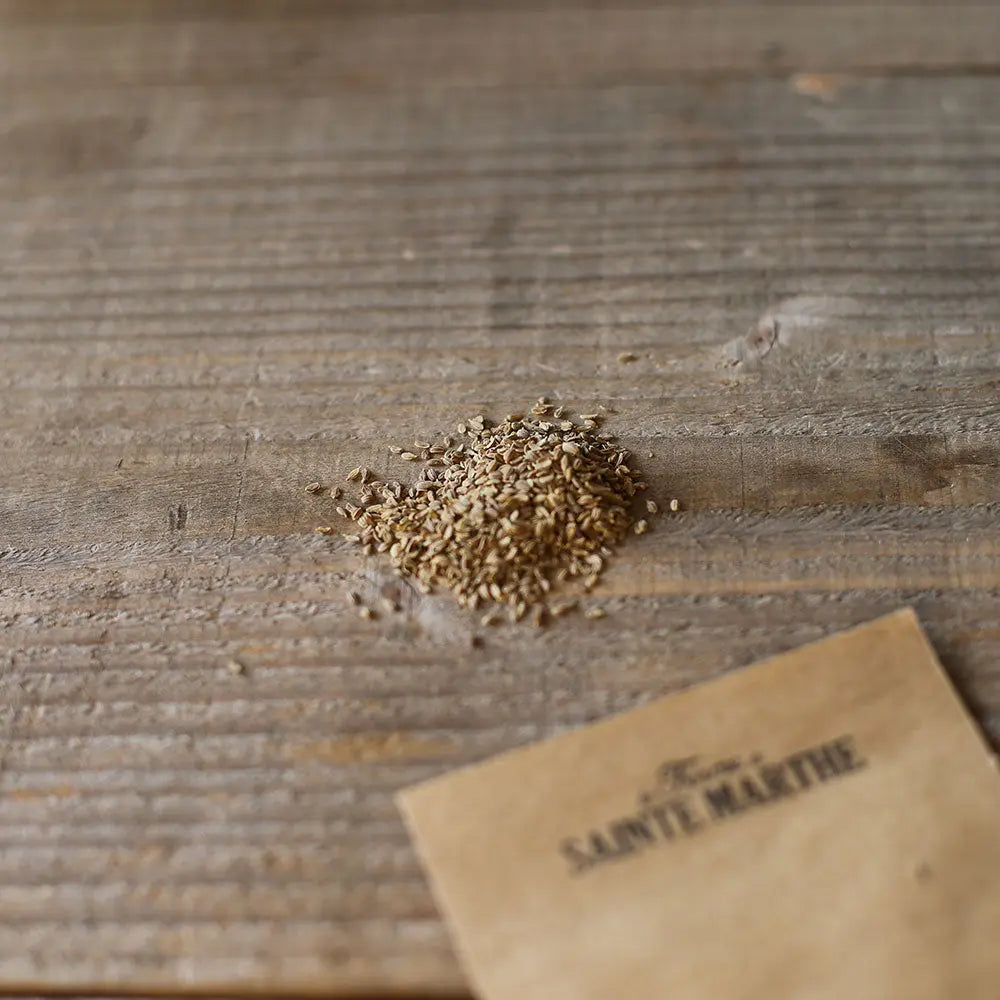CARROT LILAC LU AB
Daucus carota
A mid-early, conservation variety with a purple root and an orange center and a sweet, mild flavor. This purple color is due to a high anthocyanin content, which is said to have beneficial effects on health. A few completely orange roots may appear occasionally. 130-day cycle. Sowing: May to July. Harvest: September to October.
Newly bred, reproducible organic variety offering an alternative to hybrids. Cultivated from the outset under organic conditions, making it perfectly suited to organic cultivation.
How to successfully sow Lila Lu carrots
Sowing: May to July. Harvest: September to October.
Prepare the seedbed very well: refine the soil well, water the soil, sow thinly in rows 25 to 30 cm apart, in a sunny location and cover with a mixture of very fine soil and sand a few millimeters deep. Water with a light rain. Place a P17 type fleece over the seedbed to keep the soil moist and prevent the surface from drying out, keep moist until the seedlings develop.
Thin out once to 4 or 5 leaves at 2 or 3 cm then to 7/8 cm.
Hoe and weed regularly. Water during dry periods.
Good pairings with carrots
You can combine your carrot crops with radishes, which means you don't have to thin out the carrot row several times, and radishes also keep red spider mites away.
Near your carrot crop you can grow onions, garlic or even leeks, they will be beneficial to the carrot by repelling the fly.
Preserving carrots
Let your carrots dry for 1 to 2 days on the ground, cut the leaves off at the root collar, and clean them without washing them. When they are dry, place them in sand in the cellar.
Enemies of the carrot
The main pest of carrots is the carrot fly. The larvae of this fly tunnel into the roots, working their way down to the tip. The heaviest infestations occur in July/August.
The foliage of affected carrots turns yellow and wilted. The best way to combat carrot flies is through prevention, using the right combinations of tansy and lavender decoctions, as well as applying an insect repellent.
Root aphids can also cause significant damage, which can be controlled with a treatment based on nettle manure.









